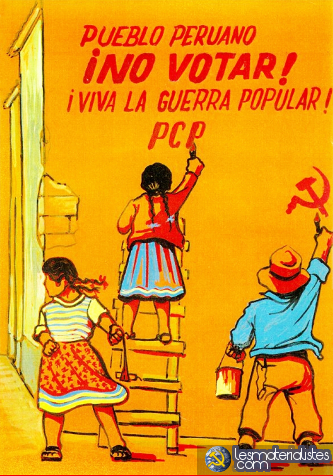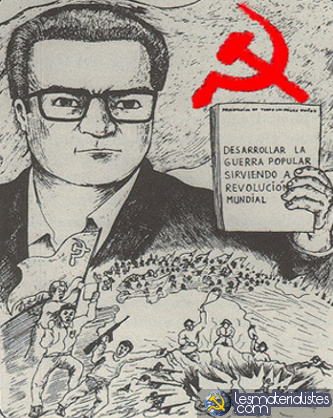Struggle through fraction or through ideology? The positions of the MPP and the CPMLM [F]
Submitted by Anonyme (non vérifié)One of the main question in the International Communist movement nowadays, and in fact since the 1960's, is the one of the reconstitution of genuine Communist Parties.
On this occasion, we never documented or formulated in a clear way a difference of approach between the CPMLM [France] and the MPP, the Communist Party of Peru's generated organism for the work abroad.
Let's present it here in four points, easy to see.
 1.What happened in the oppressed countries and in the imperialist countries
1.What happened in the oppressed countries and in the imperialist countries
In the 1950's, or even earlier, the Communist Parties formed following the wave of the 1917 revolution and then members of the Communist International began to degenerate; with revisionism's success in 1953 in the Soviet Union, the process was nearly completed.
The word “nearly” plays here an amazing role. Indeed, the anti-revisionists formed in the 1960's “fractions” in the revisionist Communist Party, considering that the process of degeneration was only nearly completed.
Soon expelled, they formed new parties, mostly called “Marxist-Leninist Communist Party”.
In Asia, Africa and South America, this happened solely in this way.
But in the imperialist countries, some others parties, considered as “leftists” by the others, didn't follow this approach. They considered that they had to form a Communist Party of the time of the Great Proletarian Cultural Revolution.
They considered that a rupture was needed with the precedent revisionism, that a “reconstitution” was not enough, a cultural and ideological leap was needed.
In the imperialist countries, the result was that there were two kind of parties:
- “ML” parties that followed a legal or a semi-legal way, refusing armed struggle and that very soon became hoxhaists;
- organizations claiming Maoism and developing an approach deeply influenced by spontaneism, practicing armed struggle, before collapsing very quickly, at least ideologically: the French Proletarian Left, the Italian Red Brigades, the (West-)German Red Army Fraction, the US Weather Underground, the Japanese Red Army, etc.
 2.Two approaches
2.Two approaches
The people claiming Maoism in Italy, in Germany (West, but also East), or even in France after some experiences, considered that the communist organization had to be rebuild.
They didn't form a “fraction” inside the Communist Party, which continued to exist in all the imperialist countries, and continue to exist even today in some countries like France or Greece.
They tried to “revolutionize” the model in the imperialist countries, and didn't succeed : they collapsed very soon ideologically, or even at the organizational level; only some splitter groups managed to continue their clandestine activities, like for example the Red Army Fraction, but with Maoism having been abandoned.
So, what appears is the following: either there would be the need to reform a “red” fraction to organize a rupture with the “old” revisionist “Communist” Party, or to recreate an ideological rupture.
3.The French example
In France, at the beginning of the 1990's and until recently, there were three conceptions that existed in the question of the reconstitution:
- the semi-revisionists tried to recreate a “red” fraction and being expelled they all proceed to a reconstitution of a Party, but it didn't work, because culturally and ideologically, no rupture was done;
- the spontaneists only proceeded to the valorization of the rupture of the past, mostly on the armed level, but not able to forge a real high ideological level;
- the CPMLM affirmed that the thought is the main aspect, after having considered that it was the key to understand the failures of the reconstitution.
 4.Struggle through fraction or through ideology? The positions of the MPP and the CPMLM [F]
4.Struggle through fraction or through ideology? The positions of the MPP and the CPMLM [F]
During the 2000's and until today, the positions of the CPMLM [F] and the MPP were always very near.
Nevertheless, the CPMLM [F] didn't accept that the MPP didn't criticize openly prachandism, or participated at international conferences with what would become the center of international centrism: the Maoist Communist Party of Italy.
The line of the MPP was always: let's be the red fraction, there should be no active rupture, the responsibility must come to the prachandists.
The result was that the prachandists could take easily the control of the Co-RIM, with then the post-prachandists taking the lead, killing softly Maoism.
Why that? Because what counts is not a “tradition” or an “historical current”, but ideology.
What counts is not a formal reconstitution of a Communist Party who only then works on the question of “thought”, but the dialectic construction of the Party / generation of the Thought.
This is how revolutionary organizations should be evaluated. Do they move in direction of the generation of the thought, or not?
